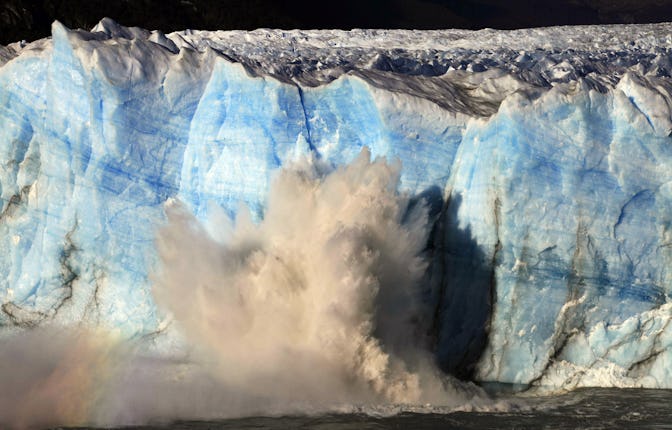Climate change is literally making the Earth spin faster
I’m no scientist, but that seems bad.

Does it feel like the days are going by too fast? Well, it turns out they are. A new study published in the Journal of Geophysical Earth found that our planet is spinning faster than ever, resulting in our days being shorter than ever.
Truth be told, you probably can’t tell that the planet is spinning faster or the days are getting shorter because the difference is infinitesimally small. A normal day here on Earth is supposed to be 24 hours, which consists of 86,400 seconds. But on June 29, we had our shortest day on record when the day concluded 1.59 milliseconds sooner than it normally would. One millisecond is a thousandth of a second. For reference, the average blink takes about 100 milliseconds, so this change in the length of the day was quite literally a blink and you’ll miss it situation.
But whether you felt it or not, the change is noteworthy. Researchers believe that the planet is spinning faster than it normally does — a change that they first started noticing in 2016. Since then, the rotation of our rock has been on the rise, and it has been consistently increasing its pace. 2020 was the fastest rotation on record, until 2021 — and now 2022 is on pace to beat it.
While this change likely isn’t having much effect on your daily life, it does run the risk of throwing our methods for keeping time for a complete loop. Currently, we rely on atomic time to measure the passage of time on Earth, monitoring the frequency of radiation of atoms to measure every second. But that could become less reliable if the planet’s rotation is changing.
As a result, some scientists have called for the introduction of a “leap second,” which would subtract one second from a day in order to keep us on track for the atomic time system. However, doing so would be a significant risk that could mess with our technological infrastructure as most machines and servers are not equipped to add a second out of nowhere.
Think of the Y2K scare, where significant preparation was required to keep computers from crashing because of the “00” in the date of the year. Now expand that considerably, given that so much of our modern world relies on servers operating in a predictable way. The fear is that a leap second could take that all down, at least temporarily. That fear is so real that Facebook’s parent company Meta is actively lobbying against the use of a leap second.
As for what is causing the planet to speed up, well, it’s us. Human-caused climate change has altered the makeup of the planet, including melting the ice caps so significantly that it appears to have changed the angular velocity of the planet. As the Earth continues to spin faster, it’s getting harder and harder to get off this ride.